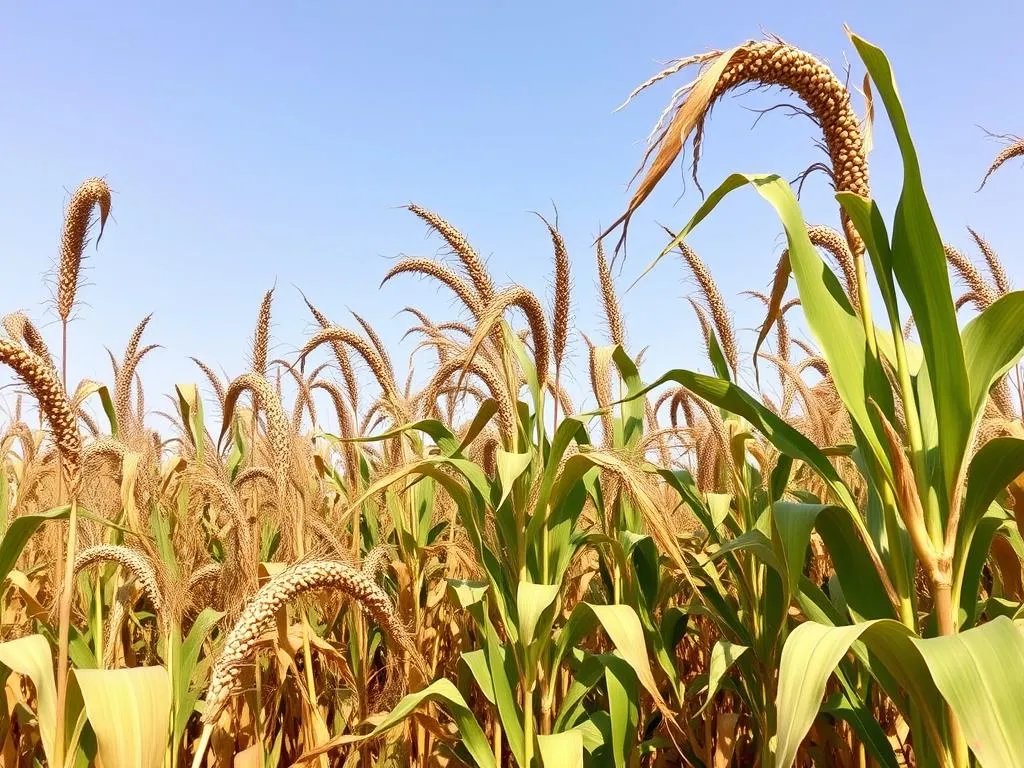Introduction
The maize, also known as corn, holds a profound spiritual significance that has been revered by indigenous cultures for millennia. This ancient grain, deeply rooted in the traditions and beliefs of many societies, offers a glimpse into the interconnectedness of the natural and spiritual realms. As we explore the maize spiritual meaning, we uncover a world of symbolism, wisdom, and the timeless connection between humanity and the earth.
In this article, we will delve into the maize spiritual meaning, uncovering its rich history, its role in various spiritual practices, and the lessons it can impart to those seeking a deeper understanding of the divine. Whether you are a seeker of spiritual enlightenment or simply curious about the cultural significance of this remarkable grain, this journey will leave you with a newfound appreciation for the sacred essence of maize.
Key Takeaways
- Maize as a Sacred Symbol: Across numerous cultures, maize has been revered as a sacred symbol, representing the cycle of life, fertility, and the interconnectedness of all things.
- Maize and Spiritual Practices: Many indigenous traditions have incorporated maize into their spiritual practices, using it as a conduit for rituals, ceremonies, and connecting with the divine.
- Maize and Abundance: The abundant and nourishing nature of maize has made it a symbol of prosperity, sustenance, and the blessings of the earth.
- Maize and Transformation: The transformative process of cultivating, harvesting, and preparing maize has been seen as a metaphor for personal growth and spiritual evolution.
The Sacred Symbolism of Maize
Maize, or corn, has long been revered as a sacred grain by numerous indigenous cultures around the world. Its significance extends far beyond its role as a staple food; maize has been imbued with profound spiritual meaning, serving as a symbol of the cycle of life, fertility, and the interconnectedness of all things.
In many Native American traditions, maize is seen as a gift from the Great Spirit, a testament to the abundance and generosity of the natural world. The plant’s ability to sustain life, its vibrant colors, and its unique growth patterns have all contributed to its sacred status. The maize plant, with its tall stalks, lush leaves, and golden kernels, is often viewed as a representation of the divine feminine, embodying the nurturing and life-giving qualities of the earth.
Maize and Spiritual Practices
The spiritual significance of maize has been deeply woven into the cultural and religious practices of many indigenous societies. From the Mesoamerican civilizations of the Aztecs and Maya to the Pueblo peoples of the American Southwest, maize has been a central component of sacred rituals, ceremonies, and rites of passage.
In Aztec tradition, maize was closely associated with the goddess Chicomecoatl, the deity of sustenance and abundance. During religious ceremonies, maize was used as an offering to the gods, symbolizing the people’s gratitude and reverence for the land’s bounty. The Mayans, too, held maize in high regard, using it in rituals to honor the cyclical nature of life and to connect with the divine forces that governed the natural world.
Similarly, the Pueblo peoples of the American Southwest have long incorporated maize into their spiritual practices. The planting, harvesting, and preparation of maize are often accompanied by prayers, songs, and rituals that reinforce the sacred connection between the people, the land, and the divine. The kachina dolls, which represent the spiritual beings that guide and protect the Pueblo people, are often depicted holding or surrounded by maize, symbolizing the grain’s importance in their worldview.
Maize and Abundance
Beyond its spiritual symbolism, maize has also been revered for its abundant and nourishing qualities. As a staple crop in many cultures, maize has been seen as a symbol of prosperity, sustenance, and the blessings of the earth.
In Mesoamerican cultures, the milpa system of agriculture, which integrates the cultivation of maize, beans, and squash, was seen as a reflection of the divine balance and harmony found in nature. The abundance of this “three sisters” planting method was not only a practical means of food production but also a testament to the earth’s generosity and the people’s deep connection to the land.
Similarly, in many Native American traditions, the first fruits ceremony, which celebrates the first harvested maize of the season, is a time of thanksgiving and reverence for the earth’s bounty. This ritual acknowledges the sustenance provided by maize and the importance of honoring the land’s gifts with gratitude and respect.
Maize and Transformation
The transformative process of cultivating, harvesting, and preparing maize has also been seen as a metaphor for personal growth and spiritual evolution. The journey from planting the seed to enjoying the nourishing kernels mirrors the human experience of shedding old patterns, embracing change, and emerging into a new state of being.
In many indigenous cultures, the preparation of maize into various foods, such as tortillas, tamales, and hominy, is imbued with ritual significance. The act of grinding, soaking, and cooking the maize kernels is seen as a metaphor for the process of transformation, where the hard, inedible outer shell is shed to reveal the nourishing, life-giving essence within.
This transformative process is often linked to personal and spiritual growth, as the people recognize the importance of shedding old beliefs, habits, and ways of being in order to embrace a higher state of consciousness and connection with the divine.
Conclusion
The maize spiritual meaning is a testament to the deep reverence and respect that many cultures have held for this ancient grain. From its symbolic representation of the cycle of life and fertility to its central role in sacred rituals and practices, maize has been a conduit for connecting humanity with the natural world and the divine.
As we explore the spiritual significance of maize, we are invited to reflect on our own relationship with the earth, the abundance it provides, and the transformative power of embracing change and growth. By honoring the sacred essence of maize, we can deepen our understanding of the interconnectedness of all things and the profound wisdom that can be found in the natural world.
So, let us embrace the maize spiritual meaning and allow it to guide us on a journey of self-discovery, gratitude, and a renewed appreciation for the gifts of the earth. For in the sacred essence of maize, we find not only nourishment for the body but also sustenance for the soul.








